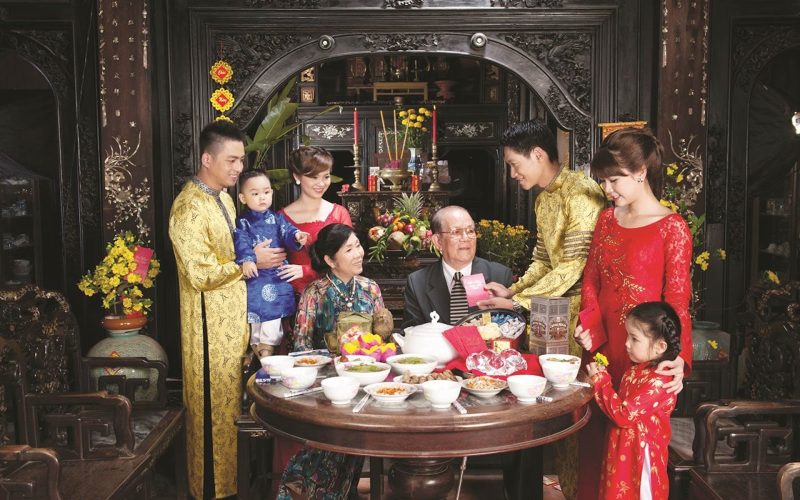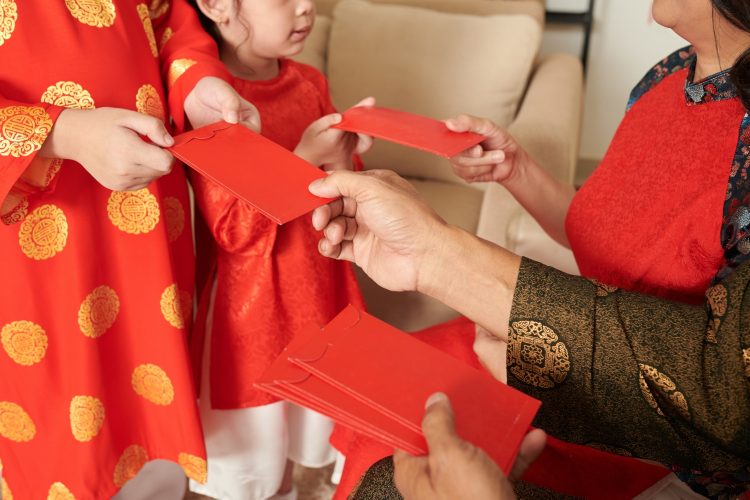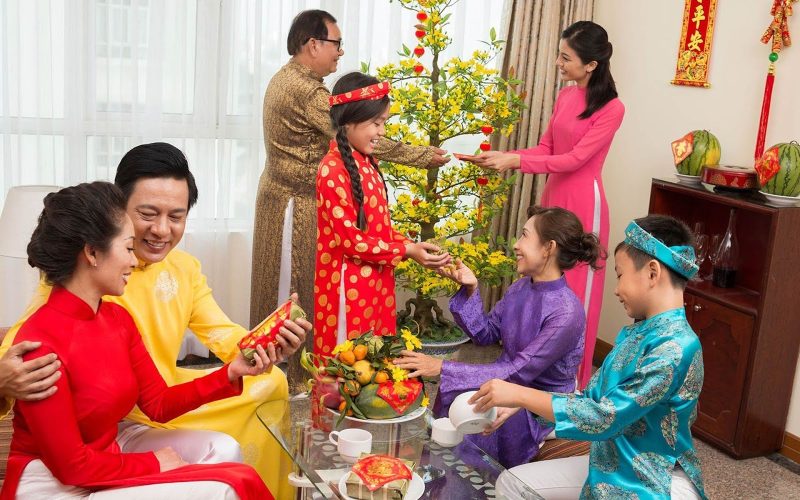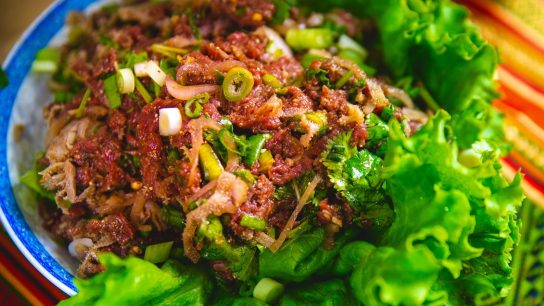The Lunar New Year, known as Tet, stands as Vietnam’s most significant and joyously celebrated festival. This period is dedicated to family reunions, ancestral homage, and cultural customs. Among Tet’s cherished traditions, the exchange of lucky money, or li xi, in vibrant red envelopes, holds profound cultural roots.
This article delves into the origin, significance, and etiquette surrounding this endearing practice, offering valuable insights for both locals and travelers alike.

What is Li Xi (or Lucky Money)?
Li Xi, the Vietnamese term for lucky money, is a cherished tradition observed during Vietnam’s Lunar New Year, Tet. Translating to “giving money to welcome the new age,” Li Xi serves as a heartfelt gesture to convey good wishes and blessings for the upcoming year.
Typically, Li Xi involves placing a modest sum of money inside a red envelope, which is then bestowed upon children, elders, relatives, friends, and even service providers. The red hue of the envelope is symbolic, representing luck, happiness, and prosperity, while the money enclosed embodies wealth, fortune, and gratitude.
The Origin Li Xi (or Lucky Money)

There are different legends and myths about the origin of Li Xi, but the most common one is related to the ancient Chinese belief that there were evil spirits who would harm children on New Year’s Eve.
According to this myth, the gods who protected the human world had to return to heaven on that night to receive new orders from the supreme deity. The evil spirits took this opportunity to go out and touch the children’s heads, causing them to cry, fall ill, or go mad.
To prevent this, some parents wrapped coins in red cloth and placed them next to their children’s pillows. The coins had the power to scare away evil spirits with their bright light. The coins also brought luck and health to the children. This practice soon spread and evolved into the custom of giving lucky money in red envelopes.
Meaning and Significance of Li Xi (or Lucky Money) in Vietnam
Beyond a mere monetary gift, li xi embodies love, respect, and gratitude. The red envelope itself symbolizes luck, wealth, and happiness, offering a discreet means of preserving the gift’s privacy. The sincerity and intent behind the gesture hold more weight than the monetary value.
Lucky money acts as a conduit for reinforcing familial ties, demonstrating filial piety, and expressing affection toward elders. It also extends to friendships, fostering a sense of generosity and spreading Tet’s joyous spirit.
How to Give and Receive Li Xi (Lucky Money)

Li Xi is traditionally presented on the first day of the Lunar New Year, although it is acceptable to extend this practice until the ninth or tenth day of the festival. Children, filled with anticipation, are the primary recipients of Li Xi, eagerly looking forward to this annual custom. To ensure a meaningful exchange of lucky money in Vietnam, it is crucial to adhere to specific rules and etiquette. Some key tips include:
- Presenting money in new, crisp bills, and avoiding old or damaged currency.
- Offering an even amount, preferably ending in an even digit, as odd numbers are associated with funerals and bad luck.
- Selecting an appropriate amount based on the relationship and situation.
- Utilizing red envelopes, available at markets or shops, adorned with auspicious words or symbols.
- Handing over the envelope with both hands, accompanied by a smile, bow, and well-wishing phrases.
- It is customary for children to greet their elders with words of respect and politeness, such as “Chuc Mung Nam Moi” (Happy New Year), “Chuc Ong Ba Suc Khoe” (Wish you good health), or “Chuc Ong Ba Phat Tai” (Wish you prosperity).
- In return, the elders present them with Li Xi and offer blessings with well-wishes like “A Khang Thinh Vuong” (Peace and prosperity), “Hoc Gioi” (Study well), or “Lon Len Nhanh” (Grow up fast).
- Receiving the gift with gratitude, using both hands and expressing thanks without opening the envelope in front of the giver.
The Benefits of Lucky Money (Li Xi)

Li Xi, as a cultural tradition, offers psychological and economic advantages, fostering positive outcomes for both givers and recipients. Some key benefits include:
- Enhanced Happiness and Satisfaction for Givers: Givers find joy and satisfaction in partaking in Li Xi, relishing the act of sharing their wealth and generosity.
- Elevated Self-Esteem and Social Status for Givers: Engaging in Li Xi contributes to an augmented sense of self-esteem and elevated social status for givers, who are perceived as kind and respectful individuals.
- Recipient’s Sense of Value and Joy: Recipients of Li Xi feel valued and loved, experiencing a profound sense of gratitude and joy through the generous gesture.
- Motivation for Recipients: Positive wishes and expectations accompanying Li Xi serve as motivational factors for recipients, inspiring them to work diligently and strive towards their goals.
- Economic Impact – Increased Circulation of Money: Li Xi plays a role in stimulating the economy by augmenting the circulation of money and encouraging higher consumption of goods and services.
Conclusion
Li Xi or Lucky Money holds a special significance in Vietnamese culture, representing its unique customs and values. It serves as a meaningful way to commemorate the Lunar New Year and convey aspirations for the future. Additionally, Li Xi pays tribute to the past and acknowledges the present, fostering a sense of intergenerational and communal connection. Through this tradition, happiness and prosperity are spread, symbolizing luck and joy within Vietnamese culture.
Don’t hesitate to join us in exploring the rich traditional culture of Vietnam. Come and experience the beauty of this country firsthand.
Infinity Club Hanoi Review: Your Passport to Unforgettable Nights
Hoa Lo Prison: A Fascinating Exploration of Vietnam's War-Torn Legacy






